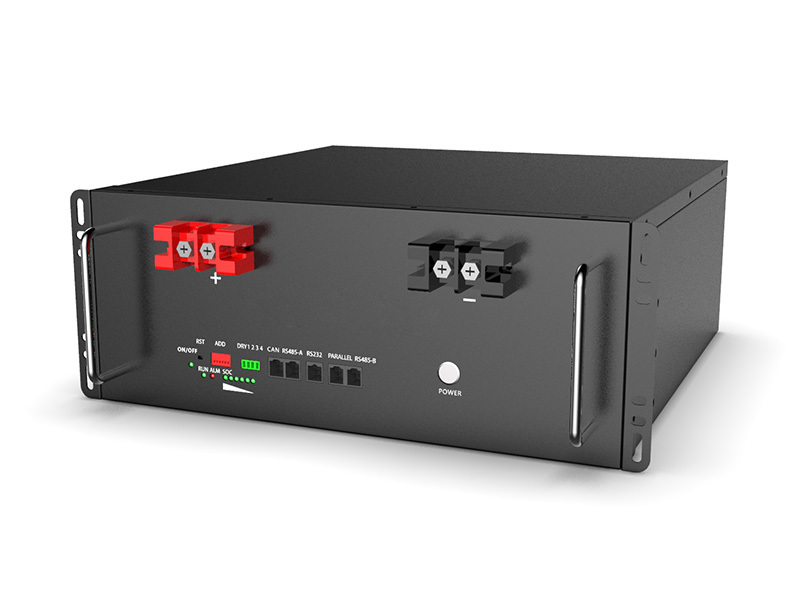Maximize Your Camping Experience with RV Lithium Batteries
Maximize Your Camping Experience with RV Lithium Batteries
Introduction to RV Lithium Batteries
Camping in an RV opens up a world of adventure, but the true magic lies in having a reliable power source. **RV lithium batteries** revolutionize the way we experience the great outdoors. Unlike traditional lead-acid batteries, lithium batteries offer a longer lifespan, quicker charging times, and enhan
2025-07-09

Maximize Your Camping Experience with RV Lithium Batteries
Introduction to RV Lithium Batteries
Camping in an RV opens up a world of adventure, but the true magic lies in having a reliable power source. **RV lithium batteries** revolutionize the way we experience the great outdoors. Unlike traditional lead-acid batteries, lithium batteries offer a longer lifespan, quicker charging times, and enhanced efficiency. This article will guide you through everything you need to know to maximize your camping experience using RV lithium batteries.
Why Choose Lithium Batteries for Your RV?
1. Superior Energy Density
Lithium batteries have a higher energy density compared to lead-acid batteries. This means they can store more energy in a smaller and lighter package. When camping, every ounce matters, and a smaller battery frees up space for other essential gear.
2. Longer Lifespan
One of the most compelling reasons to switch to lithium is their longevity. **RV lithium batteries** can last up to 10 years or more with proper care, significantly outpacing their lead-acid counterparts which typically last 3 to 5 years.
3. Faster Charging Times
Lithium batteries charge at a significantly faster rate, allowing you to spend more time enjoying your camping experience and less time waiting for your battery to charge. Depending on the size of your battery and charger, you could be fully charged in just a few hours.
4. Lightweight Design
Reducing weight is crucial for RV travel. Lithium batteries are substantially lighter than traditional options, which can contribute to improved fuel efficiency and easier handling.
5. Deep Discharge Capability
Lithium batteries can be discharged deeper without damage, allowing you to utilize more of their capacity. This is particularly advantageous during extended trips where power may be scarce.
Understanding the Different Types of RV Lithium Batteries
1. Lithium Iron Phosphate (LiFePO4)
Lithium iron phosphate batteries are known for their **thermal stability and safety**. They are commonly used in RVs due to their reliability and lower risk of fire compared to other lithium chemistries. With a cycle life of over 3,000 cycles, they are often the best choice for extended camping trips.
2. Lithium Cobalt Oxide (LiCoO2)
While lithium cobalt oxide batteries offer higher energy density, they are not as safe as LiFePO4. They are primarily used in consumer electronics and are less suited for RV applications due to their susceptibility to overheating.
3. Lithium Manganese Oxide (LiMn2O4)
Lithium manganese oxide batteries combine properties of both LiFePO4 and LiCoO2, offering a good balance of safety and performance. However, they still do not extend the cycle life that LiFePO4 batteries provide.
How to Choose the Right RV Lithium Battery
1. Determine Your Power Needs
Calculating your **power consumption** is crucial when choosing an RV lithium battery. Assess the wattage of all appliances you plan to use. For instance, a 100W appliance running for 5 hours consumes 500Wh. Ensure your battery can handle the total load you expect to draw.
2. Consider Battery Capacity
Battery capacity, measured in amp-hours (Ah), indicates how much energy the battery can store. For most RVs, a range between 100Ah to 300Ah is preferred. Determine your camping duration and power requirements to select the appropriate capacity.
3. Evaluate Charging Options
Ensure your RV is equipped with a charger compatible with lithium batteries. Many RVs come with a built-in charger, but it may require an upgrade to ensure optimal charging speeds and battery management.
4. Review the Battery Management System (BMS)
A quality battery management system is essential for maintaining the health of your lithium battery. It protects against overcharging, overheating, and excessive discharging, ensuring safe and efficient operation.
Installation Tips for RV Lithium Batteries
1. Safety Precautions
Before installation, disconnect your RV from any power source to avoid shocks or short circuits. Wear safety goggles and gloves to protect yourself from potential hazards.
2. Where to Install
Choose a location with adequate ventilation and protection from moisture. An ideal spot is near your existing battery compartment, but ensure it adheres to the manufacturer's recommendations.
3. Connecting the Cables
Follow the appropriate wiring diagram according to your battery's specifications. It’s essential to connect the positive and negative terminals correctly to avoid damage. Use high-quality, appropriately sized cables for optimal performance.
4. Testing the Setup
Once installed, test your battery system by turning on appliances and checking the power levels. Ensure that your battery management system is functioning correctly.
Maintaining Your RV Lithium Battery
1. Regular Monitoring
Keep an eye on your battery's state of charge and voltage levels. Many advanced lithium batteries come with monitoring apps that provide real-time data.
2. Clean Terminals
Corrosion can hinder performance. Regularly check and clean battery terminals with a mixture of baking soda and water to remove any buildup.
3. Avoid Deep Discharges
While lithium batteries can handle deep discharges, it’s best practice to avoid consistently draining them below 20% to prolong their lifespan.
Top RV Lithium Battery Brands to Consider
1. Battle Born Batteries
Known for their high-quality lithium batteries, Battle Born offers an impressive warranty and excellent customer service. Their batteries are designed specifically for RV use.
2. Renogy
Renogy’s lithium batteries are popular for their competitive pricing and efficiency. They provide reliable power solutions for various outdoor applications.
3. Victron Energy
Victron is renowned for its innovative energy solutions, including lithium batteries that integrate seamlessly with various charging systems.
Frequently Asked Questions
1. How long do RV lithium batteries last?
With proper care, RV lithium batteries can last up to 10 years or more, far exceeding traditional lead-acid batteries.
2. Can I use my existing charger with a lithium battery?
Not all chargers are compatible with lithium batteries. Ensure that your charger is specifically designed for lithium technology.
3. Are lithium batteries safe for RV use?
Yes, lithium batteries, especially lithium iron phosphate (LiFePO4), are considered safe due to their thermal stability and sophisticated battery management systems.
4. How can I increase the lifespan of my RV lithium battery?
Regular monitoring, avoiding deep discharges, and ensuring proper charging can significantly extend the lifespan of your battery.
5. What is the best capacity for an RV lithium battery?
The ideal capacity depends on your power consumption. For most RVs, a range of 100Ah to 300Ah is recommended.
Conclusion
Maximizing your camping experience with RV lithium batteries is not merely about having a power source; it’s about enhancing your overall adventure. By understanding the advantages, selecting the right battery, and properly maintaining it, you can unlock the full potential of your RV. Enjoy the freedom of the open road, knowing that you have a reliable and efficient power source at your disposal. As you embark on your next outdoor journey, let RV lithium batteries be the catalyst for unforgettable experiences.
Key words:
Related News


